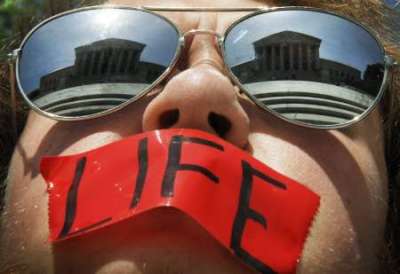At Least 9 States Considering Bills to Ban Sex-Selective Abortions

In the U.S. it is illegal in only four states to have an abortion solely based on the fetus' gender, but now at least nine states look to join them with their own bans.
Utah, Florida, New York, Indiana, Iowa, Mississippi, Kansas, Colorado and North Dakota have legislation in the works that would ban sex-selective abortions if their bills pass. Currently, only Arizona, Illinois, Pennsylvania and Oklahoma have laws against sex-sective abortions.
Dr. Stephen Mosher, president of the Population Research Institute, told The Christian Post in an interview on Tuesday that gender-selective abortions were not much heard of 20 or 30 years ago (shortly after abortion was legalized), but has now "become more common with Indian, Chinese, Vietnamese, and Korean immigrants coming on shore."
Mosher added, "Secondly, with the decline in family size, more and more people decide they want the perfect family – however they define it – which sometimes don't include a girl and certainly doesn't include in many cases more than one girl."
The practice of selective abortion on female fetuses is most common in areas where males are valued more than females as a cultural norm, especially in parts of China, India and Pakistan.
Mosher pointed out, "160 million girls have been killed in India in what is referred to as a 'gendercide'. While I was in China in 1979 I saw babies killed because of them being little girls."
"I believe that God is the Creator of life and we have a life span from conception to death that should not be interrupted at any point," he added.
Illinois' gender-selective abortion bill passed into law in 1975, prohibiting abortions performed "with knowledge that the pregnant woman is seeking the abortion solely on account of the sex of the fetus."
Pennsylvania followed in 1982 with a bill that mandated that "unnecessary" abortions are illegal. The bill defined gender-selective abortions to be unnecessary. In 2010 it became illegal in Oklahoma for physicians to perform abortions based on gender unless there is a "genetic disorder" directly linked to the sex of the fetus. Violators are subject to "civil contempt" and will be fined $10,000 for the first violation, $50,000 for the second violation, and $100,000 for the third violation, and for each violation thereafter. And Arizona in 2011 prohibited abortions based on sex or race of the fetus or race of the parent.
Groups such as Planned Parenthood are opposed to the sex-selective abortion bans. Mosher revealed, "Planned Parenthood Federation of America (PPFA) went all out against the bill, warning House members on May 29th not to vote for it. A vote for the bill would be 'scored,' the abortion provider said, as a vote against 'women's health.'" He added, "That same day, the Huffington Post reported that 'no Planned Parenthood clinic will deny a woman an abortion based on her reasons for wanting one, except in those states that explicitly prohibit sex-selective abortions (Arizona, Oklahoma, Pennsylvania and Illinois).'"
"What this means is that PPFA will happily perform – for a profit – a sex-selection abortion, except where it is illegal. And, of course, PPFA is absolutely opposed to making it illegal, and will work to defeat any congressman who votes in favor of doing so."
In 2012, legislation to outlaw gender-selective abortion failed to pass the House of Representatives, but Rep. Trent Franks (R-Ariz.) wants to reintroduce the bill that would prohibit discriminatory abortion practices against the unborn on the bases of gender, race and other purposes. Franks says that such a law could challenge Roe vs. Wade. "I plan to continue to re-introduce this legislation until it is passed through the Congress," Franks said in a statement.
Pro-life groups and supporters hope to fight for gender-selective abortion bans on the state level until the ban is issued on the federal level.



























